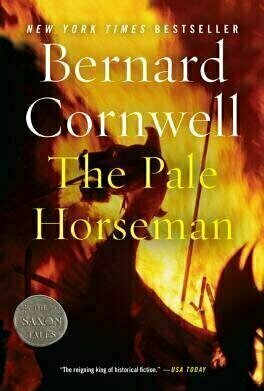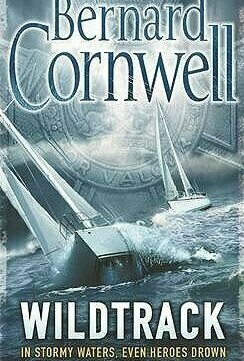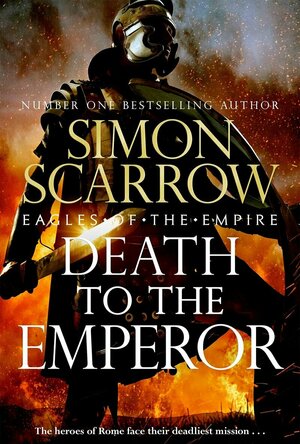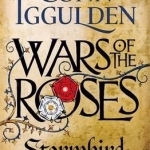
Wars of the Roses: Stormbird
Book
Historical fiction master Conn Iggulden retells the gripping story of the English Civil War in this...
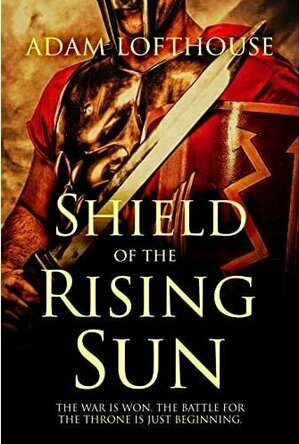
Shield of the Rising Sun (Path of Nemesis #3)
Book
The perfect next series for fans of Bernard Cornwell and Simon Scarrow War still rages at the...
Roman Empire Marcus Aurelius Commodus
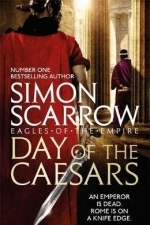
Day of the Caesars: Eagles of the Empire 16
Book
If you don't know Simon Scarrow, you don't know Rome AD 54. Claudius is dead. Rome is in turmoil....
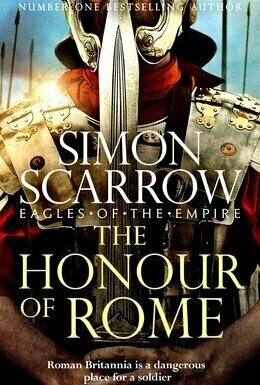
The Honour of Rome (Cato and Macro #20)
Book
A stunning novel of courage, camaraderie and deadly enemies from the Sunday Times bestselling author...
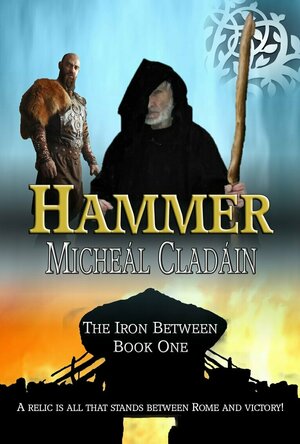
Hammer (The Iron Between #1)
Book
Genonn’s tired and dreams of a remote roundhouse in the Cuala Mountains. However, sudden...
Epic Historical Fantasy
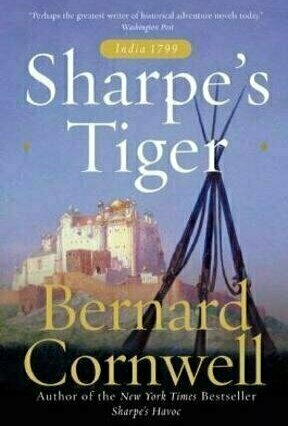
Sharpe's Tiger (Sharpe, #1)
Book
The prequel to the series, describing Sharpe's experiences in India. Sharpe’s Tiger describes the...
Lyndsey Gollogly (2893 KP) rated The Pale Horseman (The Saxon Stories #2) in Books
Oct 15, 2023
Book
The Pale Horseman ( The Last Kingdom 2)
By Bernard Cornwell
⭐️⭐️⭐️⭐️
Uhtred, Northumbrian born, raised a Viking and now married to a Saxon, is already a formidable figure and warrior. But at twenty he is still arrogant, pagan and headstrong, so not a comfortable ally for the thoughtful, pious Alfred. But these two, with Alfred's family and a few of Uhtred's companions, are apparently all that remains of the Wessex leadership after a disastrous truce. It is the lowest time for the Saxons. Defeated comprehensively by the Vikings who now occupy most of England, Alfred and his surviving followers retreat to the trackless marshlands of Somerset. There, forced to move restlessly to escape betrayal or detection, using the marsh mists for cover, they travel by small boats from one island to another, hoping that they can regroup and find some more strength and support. They seek refuge in Athelney, a tidal swamp to which Alfred's kingdom has shrunk. Uhtred finds himself torn between his Danish foster brother and the winning Vikings, and his growing respect for the stubborn leadership of Alfred. He must decide whether to rebuild the Saxons' strength from his watery base and help them to take on the Vikings once more.
I loved this book! This is the second one in the The Last Kingdom series and book has this kicked me in the bum! I love historical fiction and this is becoming one of my favourite series. The end of this book made me want to throw it at losing a character I think is just fantastic and made me laugh. Im not going to mention which one as I don’t do spoilers, but if you’ve read it you’ll know!
Yet I was aware he had also written a couple of other, more contemporaneous set, novels and mainly concerned with sailing.
I had never read any of those until recently (they held little appeal), when I came across Sea Lord on offer on Kindle, and decided to pick it up. I did feel it was not as good as his more 'usual' sort of novel; not as good as the Sharpe books or those of The Last Kingdom, for example.
So I wasn't really on the look out for any more of his so-called 'sailing thrillers'.
Having said that, when I came across this one - which I have since learnt was the first of his sailing thriller novels - also on sale, I never-the-less thought I would give this style of work another chance.
As before, I found that - while an enjoyable enough read - this does NOT live up to the standards set by the likes of the aforementioned Sharpe or Uhtred novels.
This is set in the I-assume-then-present 1980s, and follows Falklands hero Nick Sandman who, as the novel starts, is in hospital after having his spine shattered by a bullet. Whilst there, he makes himself a promise that, once better, he will sail his beloved boat Sycorax to the other side of the world, but finds that this will be easier said than done once he discharges himself from the hospital and finds that his ex-wife has sold his berth to TV personality Tony Bannister and left the boat to rot, who - in exchange for his help in refitting Sycorax - want Sandman to help navigate his own boat Wildtrack to victory in an ocean race. The rest of the novel then deals with the fallout from this devils bargain, especially as Bannister has powerful enemies of his own ...
So, yeah, enjoyable enough but not Cornwell's best.
David McK (3562 KP) rated Death to the Emperor (Macro and Cato #21) in Books
Apr 10, 2023
I wondered into a local branch of Eason's, and saw Under the Eagle on offer, sold for an introductory price (which I can't even remember), and with a blurb that sounded interesting. That, and a quote from the king of historical action-adventure fiction Bernard Cornwell that 'I really don't need this kind of competition ... a great read'.
Jump forward just over 20 years, and we're now onto book #20 in the series, and back in the Roman province of Brittania after the intervening books have had us all over the Roman Empire.
The series has also lost the 'Eagle' that was always included somewhere in the earlier titles (Under the Eagle, The Eagle's Conquest, The Eagle and the Wolves etc), with that word last used in the title in entry # 7 (The Eagle in the Sand).
That's not all that has changed: Cato is no longer the scared young man he had been in the first entries; Macro no longer the seasoned Centurion. Now, Macro is retired from active service whilst Cato - who now has a family of his own - has risen in rank above that that Macro ever reached but is still firm friends with the latter.
We've now also reached a pivotal moment in Roman Britain history, with the Boudicean revolt just about to kick off (as it does here) and as the Romans finally capture and raze the Druid stronghold of Mona.
Those two events form the backbone of this novel, with Cato involved in the attack on Mona whilst Macro is charged with the defence of Camulodunum (Colchester) and in charge of the Roman Reserves there whilst the main army is away on campaign, just after the Governor of Britain has further alienated their Icenian allies.
As with all of the Simon Scarrow books I've read, the history is worn lightly enough to make an enjoyable read: this is not a dry, stuffy retelling of events but rather uses the real historical events as the backbone for the story being built around it.
This, I have to say, is also the first in the series that I can remember ending in a definite cliffhanger ...
(I might have to go back and re-read the previous now)

Lonely Planet Africa
Lonely Planet, Simon Richmond, Stuart Butler and Paul Clammer
Book
Lonely Planet: The world's leading travel guide publisher Lonely Planet Africa is your passport to...
